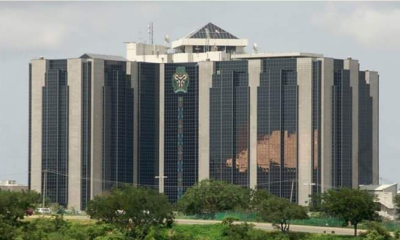GRTech
ALTON raises alarm on imminent telecom blackout in Kogi, FCT, other States


The Association of Licensed Telecommunications Operators of Nigeria (ALTON) expressed its concern about the shutting down of telecommunications facilities in Kogi State as a result of disputes arising from unusual taxes and levies demanded by the Kogi State Government through Its Ministry of Environment and physical planning, Ministry of Environment and Mineral Resources, Kogi State Environmental Protection Board, championed by the Kogi State Internal Revenue Service (KIRS).
This issue, the Association said today, is likely to lead to a total communications blackout in the entire Kogi State, parts of Abuja the Federal Capital Territory and possible impact on service availability in some parts of the following States: Nassarawa, Benue, Enugu, Anambra, Edo, Ondo, Ekiti, Kwara, Niger States.
“These are States sharing borders with Kogi State”, Chairman of ALTON, Engineer Gbenga Adebayo, explained during a press conference on “Critical Alarm on imminent telecom blackout in Kogi and other Nine (9) States including Abuja FCT – Call for urgent intervention”.
According to Engineer Adebayo, this situation arises as a number of critical telecommunications sites belonging to the members have been closed and sealed up by Kogi State Government in an attempt to increase its Internally Generated Revenue IGR Collection.
“This action followed an ex-parte court order obtained by the KIRS over unsubstantiated allegations that our members are in default of tax payments to the state government (which is not the truth) and access to these critical telecom sites has been denied.
“As result of these actions by the state government, our members are unable to refuel power generators in these sites, a situation which has led to outage of over 70 sites including hub sites across parts of Kogi State. Now, with likely impact on Nine States surrounding Kogi (namely:- Nasarawa, Benue, Enugu, Anambra, Edo, Ondo, Ekiti, Kwara, Niger States. These are States sharing borders with Kogi State), and Abuja the FCT inclusive. And between Friday and this morning, we received information that the number has risen to 150 sites.
ALTON is concerned
“We are very concerned that this indiscriminate action has the potential of further leading to a total telecommunications outage in Kogi State with neighboring states and parts of the Federal Capital Territory adversely impacted.
“To the best of our knowledge, our members have settled all statutory levies and taxes due to the Kogi State Government and have taken necessary steps to comply with local laws that govern business activities within Kogi State”.
ALTON listed these charges described as:
- Annual Right of Way (ROW) renewal
- Social Services contribution
- Employee Economic Development Levy,
- Mast site premises renewal
- Fire service yearly renewal,
Others are from the kogi State Environmental Protection Board on:
- Payment of environmental levy
- Failure to submit an environmental impact assessment report;
- Failure to register industry;
- Failure to submit environmental audit report every 2 years;
- Storage of petroleum products and radioactive materials without written permission from KSEPB;
- Failure to comply with setbacks to roads, power lines and rivers/streams; and
- Dumping of toxic or hazardous substances or hazardous substances or harmful waste without KSEPB approval.
“ALTON is worried that the action by KIRS will jeopardize communication services provided by us to security agencies such as the Nigeria Police Force, the Armed Forces in addition and to other emergency and social services in Kogi and other neighboring states. This will include affecting communication links to Bank automatic teller machines (ATM) across those states.
“The outage currently being experienced is already affecting the ability of our members to provide uninterrupted service delivery to Commercial Banks, Central Bank of Nigeria, the Nigerian National Petroleum Corporation and other critical agencies of government in the aforementioned locations.
“It is pertinent to note that the office of the National Security Adviser to Mr. President has in the past communicated to the 36 state governments on the fact that telecommunications sites are Critical National Infrastructure (CNI). They are critical socio-economic and security infrastructure. The agency had strongly advised against sealing them as such actions would have negative implications on national security.
“State Governments were encouraged to explore other means of resolving tax related disputes rather than sealing telecommunications sites. It is therefore worrisome that the KIRS continue to ignore such advice.
“Our members have also made several overtures to Kogi State Internal Revenue Service KIRS in the past months in a bid to resolve the disputed issues amicably but the agency has remained adamant. Rather than resort to the Tax Arbitration Tribunal for intervention as is expected of a government agency, KIRS has resorted to subtle intimidation by getting the sites shutdown in a bid to coerce our members into accepting the illegal taxes and levies.
“As an industry, this situation is very worrisome and of great concern and we hereby call on His Excellency, The President of the Federal Republic of Nigeria, the Vice President of the Federal Republic of Nigeria, who is driving the Presidential Enable Business Council on Ease of doing business in Nigeria to prevail on the Kogi State Governor His Excellency, Yahaya Bello to reign in on the matter to prevent a total blackout in communications services in Kogi, FCT and other Nine States of the Federation which are now under threat due to what is happening to our network in Kogi State”.
Source: TechEconomy.ng
GRTech
SHELT SI Achieves Cisco Select Partner Certification


SHELT System Integration (SHELT SI) has announced its achievement of Cisco Select Partner certification in Nigeria, marking a significant milestone in its commitment to delivering top-tier networking and security solutions to businesses across the region.
This certification underscores SHELT SI’s dedication to excellence in providing innovative networking and security solutions tailored to meet the evolving needs of the market.
The Cisco Select Partner certification is a validation of SHELT SI’s technical expertise and commitment to customer satisfaction, as well as its ability to deliver cutting-edge networking and security solutions that drive business success. With this recognition, SHELT SI is affirming its ability to further enhance its offerings and support its clients in navigating the complexities of the digital landscape.
Cisco Nigeria General Manager Sebastine Nzeadibe comments: “We are delighted to welcome SHELT SI to the ranks of Cisco Select Partners in Nigeria. Their demonstrated commitment to excellence and customer satisfaction aligns perfectly with our values, and we look forward to collaborating closely together to empower businesses with transformative networking and security solutions.”
Youssef Abillama, CEO of SHELT, comments: “Achieving this certification strengthens our relationship with CISCO and is a testament to our team’s dedication and expertise in delivering best-in-class solutions. This milestone reinforces our commitment to empowering businesses in Nigeria with innovative technology solutions that will enable them to thrive in the digital age through cutting-edge technology solutions.”
SHELT’s Country General Manager, Walid Bou Abssi, added, “The Cisco Select certification empowers us to provide an increased level of support and further enhances our ability to address the requirements of our clients’ evolving needs in Nigeria. It is an acknowledgement of the ability of our pre-sales, sales, and client support teams to design, quote, deploy, and support Cisco solutions.”


Boxes have a multitude of uses, and the word “box”, lends itself to diverse contexts. For “Ajala Travelers,” the box is a necessity for keeping goods for their endless journeys. In literature, idiomatically, it can be said that “one has been boxed into a corner;” another might say to deal with a conundrum: “think outside the box;” then there is the “Pandora’s box” that no one wants opened.
To “box one’s ear’s” refers to a hit on the head, especially around one’s ears. For those who celebrate Christmas, “Boxing Day,” which is the 26th of December, the second day of Christmastide is not to be joked with: A day to unbox gifts. So much for the box.
Another type of boxes exists in the telecommunications world: The SIM Box. Have you ever received an international call but saw a local phone number ring in? That is SIM Boxing in action. Let me explain.
SIM boxing happens when a person uses a special equipment, what is called a SIM Box containing tens to hundreds of SIM Cards—from 32, to 96, to 512 and more SIMs —to terminate international calls by bringing in the international call into the SIM Box using internet connections and regenerating the calls to the called party from one of the hundred SIMs in the box.
This way, the called party will see the local number of the SIM from the SIM Box, and not the original international number calling.
With SIM Boxes, the syndicate charges international call carriers lower rates than what regular Nigerian telecommunications operators would charge, as they do not have to pay the full cost of maintaining and operating a phone network.
Basically, they are bypassing the normal route for international phone call termination to terminate international calls cheaply and making windfall profits off it.
Take for instance, a telecommunications operator in Nigeria would ordinarily charge international carriers 10cents per minute for terminating an international call in Nigeria. However, by routing the call through a SIM Boxing syndicate, the international telecommunications carrier only pays a fraction of the charge to the syndicate, say 5cents per minute and does not have to pay the full 10cents per minute charge.
The SIM Boxer will terminate this call to the called subscriber at a rate of, say N15 per minute using one of the SIM cards in their SIM Box. The SIM Boxer thus makes a killing from the differential between the rate charged to the international carrier and the rate paid to telecommunications operators whose SIM they utilise in their SIM Boxes, at the expense of our national security and income of mobile network operators and quality of our service to consumers.
Asides the revenue loss that local mobile network operators suffer courtesy the activities of these syndicates, networks face congestion around areas where the illegal call routings via SIM Boxing occurs. With the huge traffic from the boxes, callers around the area see more dropped calls, poor call quality, and slower data speeds.
The introduction of the linking of National Identity Numbers (NIN) to SIMs is one way the Federal Government has worked to tackle this criminal enterprise. With every SIM in the country being linked to an NIN, an identity is tied to the owner of each line, and regulators now have visibility of ownership. That is not all. There is also the “Max-4 Rule” where a subscriber is not allowed to have more than four lines per network operator linked to his NIN. With this rule in place, coupled with the NIN-SIM Linkage, every telephone subscriber in Nigeria would not just be accurately identifiable but limited to having only four telephone lines per subscriber.
To enforce this rule, the Nigerian Communications Commission (NCC) on the 29th of March 2024 announced the deadline for Mobile Network Operators to bar all subscribers who had five lines and above, and whose NIN failed the verification test of biometrics matching.
Over the last few weeks, sources within the NCC have confirmed cases where a single NIN was linked to over 100,000 lines.
Some NINs had well over 10,000 SIMS linked to them, others over a thousand, others had hundreds. Many have questioned the reports and asked, what would any single reasonable person be doing with these number of lines? Justifiable questions, because no sane person—who is not running a business—should own more than five SIM cards.
Given the ‘Max 4 Rule’ in place and the NIN-SIM Linkage Policy, SIM Boxers have been boxed into a corner.
The applications they use require tens to thousands of SIM Cards, and the imperative to stay anonymous. If these policies are well and fully implemented, this is the death knell for SIM Boxing merchants.
But the regulator, NCC needs to be fast and ready for the battle ahead. SIM Boxing is a billion-dollar criminal enterprise. They are not going to go down without a fight. It is like taking a bone being chewed from the mouth of a bulldog.
Already, the battle seems to have kicked off. A lawyer, Barrister Olukoya Ogunbeje has recently taken the Federal Government, NCC and Mobile Network Operators to court, claiming that the barring of SIMs not linked to NINs goes against his fundamental human rights, and has cost him the loss of business opportunities.
Anyone who has Nigeria’s interest at heart ordinarily supports this policy. It then does not add up seeing a so-called activist lawyer take up such a matter that is clearly against the public interest—unless this is the Haka cry of SIM Boxers.
A most interesting observation with his case is that it is not even a class action, but individually driven. It begs the question then, who is funding Barr. Olukoya Ogungbeje? What is his interest in fighting this policy that puts paid to the business of a criminal enterprise? Is he funded by interests in the SIM Boxing world? Time would tell. But in the meantime, NCC must go head on without fear or intimation and clean the Augean stable of SIM ownership in Nigeria.
Suleiman Bala Bakori is a researcher, and writes from the FCT.
GRTech
Sophos Partners with Tenable to Launch New Sophos Managed Risk Service


. New Fully Managed Solution Provides Visibility, Risk Monitoring, Prioritization, Investigation, and Proactive Notification to Prevent Cyberattacks
April 4, 2024 – Sophos, a global leader of innovative security solutions that defeat cyberattacks, today announced a strategic partnership with Tenable, the Exposure Management company, to provide Sophos Managed Risk, a worldwide vulnerability and attack surface management service.
The new service features a dedicated Sophos team that leverages Tenable’s exposure management technology and collaborates with the security operations experts from Sophos Managed Detection and Response (MDR) to provide attack surface visibility, continuous risk monitoring, vulnerability prioritization, investigation, and proactive notification designed to prevent cyberattacks.
The modern attack surface has expanded beyond traditional on-premises IT boundaries, with organizations operating frequently unknown numbers of external and internet-facing assets that are unpatched or under protected, leaving them vulnerable to cyberattackers.
This is evident in the newest Sophos Active Adversary Report, also released, which identifies three tasks that organizations must prioritize to minimize the risk of brazen intrusions that lead to ransomware or other types of attacks.
These include closing exposed Remote Desktop Protocol (RDP) access, enabling multi-factor authorization and patching vulnerable servers, all of which were top entry points in breaches handled by Sophos Incident Response in 2023.
The Sophos Managed Risk service can assess an organization’s external attack surface, prioritize the riskiest exposures, such as open RDP, and provide tailored remediation guidance to help eliminate blind spots and stay ahead of potentially devastating attacks.
“Sophos and Tenable are two industry security leaders coming together to address urgent, pervasive security challenges that organizations continuously struggle to control. We can now help organizations identify and prioritize the remediation of vulnerabilities in external assets, devices and software that are often overlooked. It is critical that organizations manage these exposure risks, because unattended, they only lead to more costly and time-consuming issues and are often the root causes of significant breaches,” said Rob Harrison, senior vice president for endpoint and security operations product management at Sophos. “We know from Sophos’ worldwide survey data that 32% of ransomware attacks start with an unpatched vulnerability and that these attacks are the most expensive to remediate. The ideal security layers to prevent these issues include an active approach to improving security postures by minimizing the chances of a breach with Sophos Managed Risk, Sophos Endpoint, and 24×7 Sophos MDR coverage.”
“While the latest zero day may dominate the headlines, the biggest threat to organizations, by a large margin, is still known vulnerabilities – or vulnerabilities for which patches are readily available,” said Greg Goetz, vice president of global strategic partners and MSSP, Tenable. “A winning approach includes risk-based prioritization with context-driven analytics to proactively address exposures before they become a problem. Sophos Managed Risk, powered by the Tenable One Exposure Management Platform, delivers outsourced preventive risk management, enabling organizations to anticipate attacks and reduce cyber risk.”
Specific key benefits of Sophos Managed Risk include:
- External Attack Surface Management (EASM): Advanced identification and classification of internet-facing assets, such as web and email servers, web applications, and public-facing API endpoints
- Continuous monitoring and proactive notification of high-risk exposures: Proactive notification when a new critical vulnerability is identified in an organization’s internet-facing assets
- Vulnerability prioritization and identification of new risks: Swift detection of high-risk and zero-day vulnerabilities, followed by real-time notification to ensure critical internet-facing assets are promptly identified, investigated and responded to by order of importance
“One of the biggest challenges organizations face when improving their security posture is prioritizing what to handle first. This type of guidance helps solve that issue and reduces the workload for security teams tasked with tackling vulnerability and exposure management,” said Craig Robinson, research vice president of Security Services, IDC. “Solutions such as Sophos Managed Risk can be a differentiator by enabling overwhelmed teams to take a more holistic approach to continuous monitoring and threat management.”
Sophos Managed Risk is available as an extended service with Sophos MDR, which already protects more than 21,000 organizations globally. The Sophos Managed Risk team is Tenable-certified and works closely with Sophos MDR to share essential information about zero-days, known vulnerabilities and exposure risks to assess and investigate possibly exploited environments.
“Sophos Managed Risk simplifies the difficult and resource consuming task of identifying vulnerabilities, really understanding the extent of risk exposure, and prioritizing necessary remediations,” said Kieron Stone, cybersecurity business development manager at Phoenix Software Ltd. “As a trusted managed service provider (MSP), this is a service we’re proud to stand behind, and nearly all our customers using it have already discovered significant vulnerabilities that they were previously unaware of. For organizations that don’t already have a well-defined vulnerability patching cadence, this is a must-have service for the identification of vulnerabilities and building that schedule; and for organizations that are already managing vulnerabilities, it’s a second set of eyes for added peace of mind that they’re not missing anything.”
Organizations benefit through regular interaction, including scheduled meetings with Sophos experts to review recent discoveries, insights into the current threat landscape, and recommendations for remediation and prioritizing actions. Additionally, organizations can initiate inquiries via the Sophos Central platform, allowing users to directly engage with the Sophos Managed Risk team for tailored support, reports and to review their latest prioritized alerts.
“You can’t fix what you can’t see. Sophos Managed Risk is shining a light on areas of exposure that require remediation in order to keep customers protected. Combining Sophos’ elite MDR experts with Tenable’s industry-leading exposure management technology gives us a full picture view of vulnerabilities with the guidance we need to minimize risk,” said Brooks Roy, president at Communications Consulting, Inc. “The real value add for us as a channel partner is having the ability to easily manage Sophos Managed Risk’s prioritized alerts across our customer base on the Sophos Central dashboard.”
Sophos Managed Risk is available with a term license through Sophos’ global network of channel partners and Managed Service Providers (MSPs). A Sophos MSP Flex version will be available in 2024.
-



 News2 days ago
News2 days ago“80% Of Buildings In Lekki Have No Approval” – Lagos State Commissioner For Physical Planning & Urban Development Reveals
-



 Education4 days ago
Education4 days agoFederal Government Sets To Commence School-To-Work Scheme
-



 News4 days ago
News4 days agoLady Dies After Friends Pushed Her Into Boiling Pot Of Fresh Pepper In Delta State
-



 Finance3 days ago
Finance3 days agoEFCC Chairman Tasks Nigerian Youths Against Crimes And Fraudulent Acts
-



 Finance14 hours ago
Finance14 hours agoBanks To Now Charge 0.5% Cybersecurity Levy As Directed By CBN; Netizens React
-



 Entertainment2 days ago
Entertainment2 days agoCelebrities Turn Up For The Dedication Of Ali Baba’s Triplets In Lagos
-



 TechNews1 day ago
TechNews1 day agoSIM Boxing, And The Unboxing of a Crime Syndicate
-



 GRTech16 hours ago
GRTech16 hours agoSHELT SI Achieves Cisco Select Partner Certification






